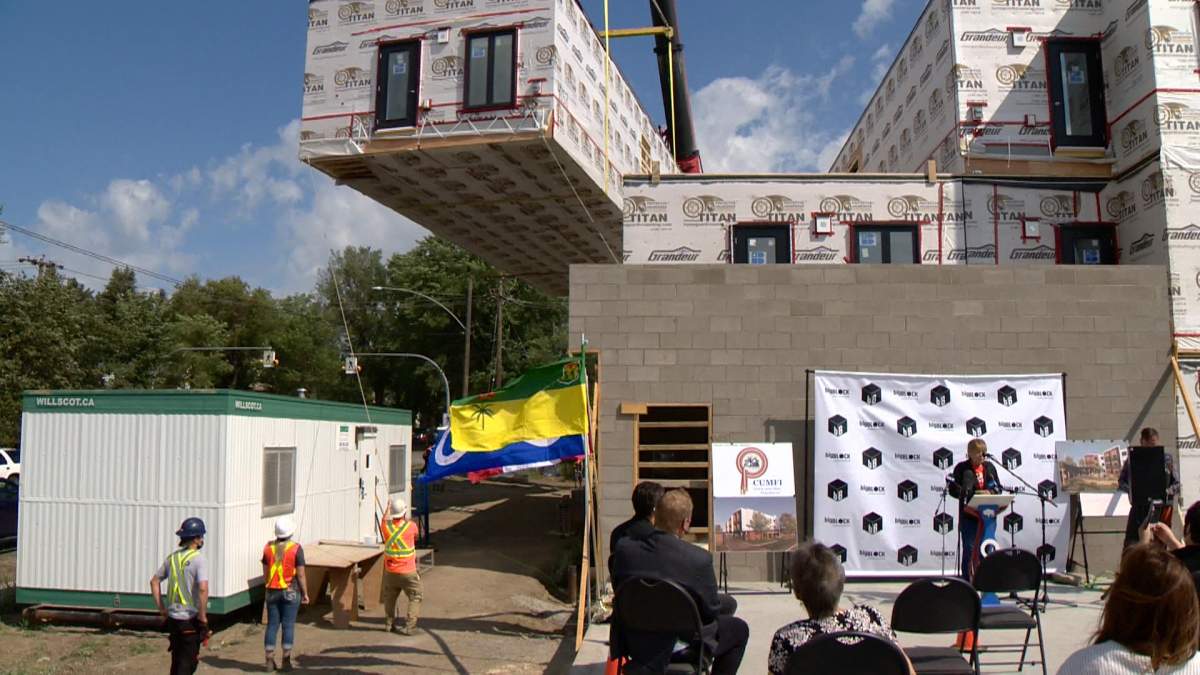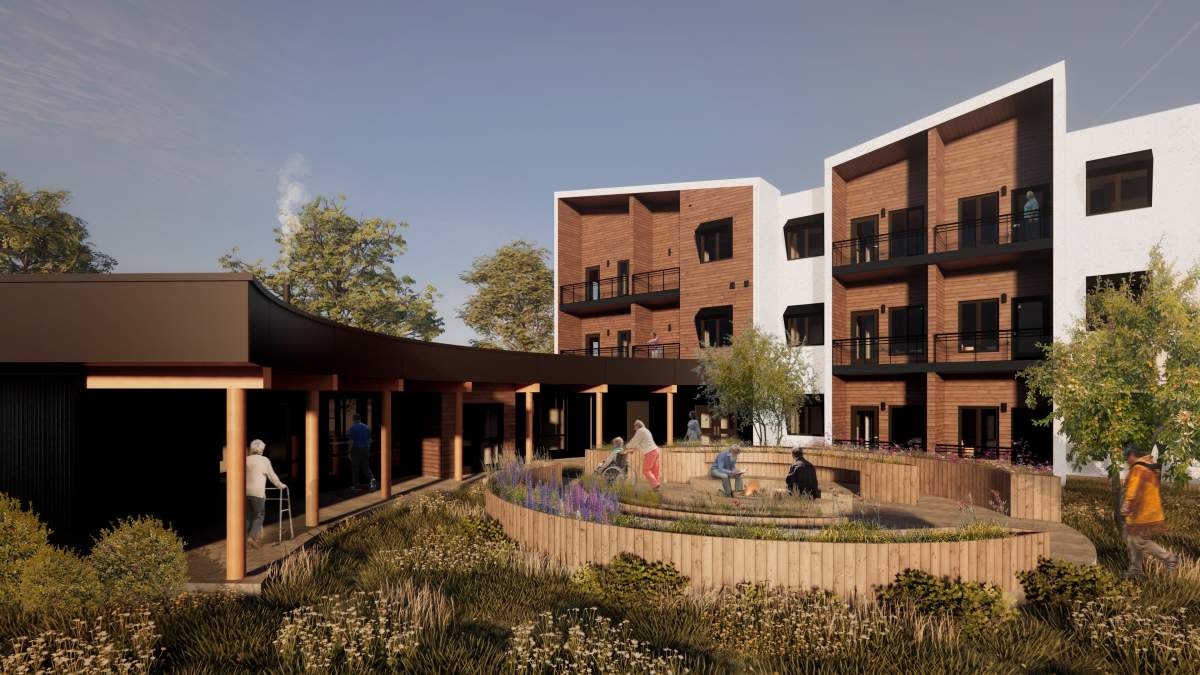Members of Saskatoon’s Métis community came together to watch the construction of the new Round Prairie Elders’ Lodge reach new heights on Wednesday.

To help celebrate the milestone, Big Block Construction offered a demonstration of its construction process by dropping a finished apartment module into place via a crane.
Central Urban Métis Federation Inc. (CUMFI) is building the 26-unit housing development as an affordable place for elders to call home in the Pleasant Hill neighbourhood.
Shirley Isbister, president of the Métis owned and operated organization, has been working on making the lodge a reality for two decades.
“It was over 20 years ago when we were talking and I always knew an elders building was a vision for the organization … And, there’s always the logistics of finding the dollars to make this happen. So I was pretty skeptical,” Isbister said.
“We’ve had so many opportunities that we thought were going to come through over the years but didn’t.
“So this is absolutely amazing. And we’re going to be able to watch the last unit be craned to the top … I’m really impressed with it, Big Block has done such a great job. And David (Fortin), you saw our vision and you took it there.”
When Métis architect David Fortin moved back to Canada from teaching in the United States several years ago, he applied for a federal research grant and had some questions.
“Everybody in our architecture world knew what teepees were, they knew what igloos were, they knew what wigwams were,” he said. “But nobody was ever questioning, ‘what about the Métis? What kind of environments in a contemporary way should Métis people be housed in?’”

Get daily National news
Fortin said his research involved travelling the Prairies looking at Métis communities’ buildings to help with designing the lodge.
“We realized through that research was that Métis people did have a distinct way of building … homes that looked from the outside as if they fit in with the colonizing communities. But once you cross the threshold, they were distinctly Métis. They had big open spaces where people could gather, play music and dance together,” he said.

“I tried to … translate some of those principles and those ideas so that part of the Métis spirit will be in these buildings.
“This is really the vision of Shirley and her team and CUMFI and what an amazing job they did to set us up to do something special here.”
Elders were involved in consultations for the project and Fortin recalled one particular meeting having a distinct impact.
“(The elder) talked about her home outside of town near Batoche and she talks about how in the spring they used to burn all the grass and then … the houses just shined white,” he said.
“And then she says, ‘I always remember the community would come together and we would feast and there’d be this black grass and these bright white houses’ and she said ‘they just would make us filled with so much joy.’
“When you look at the palette of this building, we wanted to play on that a little bit. We wanted this building to be a big, bright white beacon. And then play with some of the black and the wood to bring out some of those stories.”
CUMFI said the lodge, located at the corner of Avenue P and 19th Street, was designed to be culturally sensitive, with features such as a fireplace outside for sacred ceremonies and a garden for growing traditional medicines.
“I just have such a vision for this and Métis people coming together … and being able to teach our children and our youth and have some kids come and visit and be able to get knowledge from the elders. Planning trips for the elders to just be able to get out and be together,” Isbister said.
“Our goal is to open Nov. 1 … It’s just going to be so amazing and I was telling the staff that I’m looking for a 12-foot Christmas tree to install by about the middle of November so that we’ll know we’re home.”




Comments
Want to discuss? Please read our Commenting Policy first.